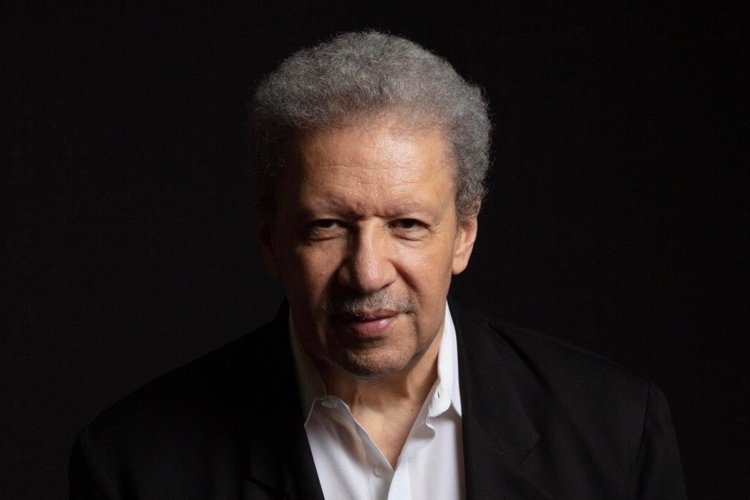|
Getting your Trinity Audio player ready…
|
In the second part of our conversation with composer Anthony Davis, we do a deeper dive into his work, X: The Life and Times of Malcolm X. Part one of our discussion can be found here.
PostGenre: X was first presented in 1986. What was behind your decision to revisit the work over thirty years later?
Anthony Davis: Well, when the pandemic hit, I wasn’t working on any new projects, and the virus canceled everything. So, I decided that I wanted to work on X. I initially decided to do smaller works with the music of X, like taking excerpts of acts for different instrumentations. I started working on the music of X every day. Because the entirety of the original score was written out by hand, I decided first to enter it into a computer to get a digital copy of the whole score. I thought doing so would make it easier to arrange parts of the score for different combinations of instruments. But as I continued to spend time with the score, I discovered things I wanted to revise. Parts of the music that I felt could have more detail to it. At some point, as I entered the score into my computer, I realized that I was making revisions as I went through.
PG: Perhaps adding ideas you have picked up with more experience with opera since you had made others since X.
AD: Well, I also wanted to be true to my 34-year-old self. That person was just discovering opera and had a very strong conception of what opera should be. But I did have 35 years of experience since then, which helped me develop more sophisticated orchestration. So, I went through and changed things I felt should be updated.
PG: Were your revisions primarily due to lessons you learned as a musician or just some personal preferences you developed as you became older?
AD: It was a few things. One was just becoming more practical with orchestration. Probably the most significant change was how we turned from a two act structure to three acts. The acts now change each time Malcolm’s name changes, from Malcolm Little to Detroit Red, from Detroit Red to Malcolm X, and from Malcolm X to El-Hajj Malik El-Shabazz. Each act represents one of his transformations. To make that approach work, I had to make some cuts and edits.
The change in acts also changed where the breaks would be in the opera. Because of this, I ended up revising the beginning, where the action starts with the singers. I think the new beginning is significantly more effective than it was before. In general, I believe the changes made the overall work more powerful.
PG: Because you worked on the opera in 2020, do you feel what was happening at the time – the murder of George Floyd and the public response to it – shaped your revisions at all? Or, because the underlying issues had existed for such a long time, did those specific events have little influence on the updated work?
AD: Well, what happened with George Floyd was, in many ways, just a continuation of things that have been occurring for generations. In the original libretto, thirty-six years ago, Thulani wrote “[y]ou had your foot on me, always pressing.” There are some prescient things like that in the libretto primarily because so little has changed over the years. What happened to George Floyd is really no different than what happened to Emmett Till. There is a recurring theme of violence. And, because of that, we didn’t change much in terms of the words in the libretto but it has so many insights into what our condition is now. That’s why it resonates so much today.
PG: Another thing that remains unchanged in X from its original version is its use of rhythms from Balinese Gamelan music. What inspired you to incorporate Indonesian musical ideas into the opera?
AD: The Gamelan influences came directly from other pieces I had been doing at the time. I recorded an album Epistēmē (Gramavision, 1981) that I had dedicated to my father. It was intended to combine ideas from Gamelan music and improvised creative music. That project kind of set me on the path of I followed with the opera.
In the scene with the dance hall, I wanted a Gamelan-like texture because when you think about Gamelan music, it is about both rhythm and drama. The rhythm ties together the drama and action. That is something I thought about a lot when I was composing that portion of X. There were many major changes and different meters that I felt better forwarded the story of the opera in those moments. Using the kind of rhythmic cells and patterns from Gamelan music created a dramatic tension that was the basis of a lot of the opera. That’s why it has its own kind of sound that is very different from other pieces. For the dance hall scene, I could have used swing music, but I didn’t want to because that scene is more about the alienation Malcolm felt. It was intended to be a more surreal perspective on the scene than just an obvious dance hall experience.
PG: In addition to Gamelan music, you have also studied South Indian music. Did you incorporate those ideas into the music for X?
AD: Yes. My focus on South Indian music was primarily on its use of rhythmic structures. X is infused with all kinds of different meters in length. I have 27 beat structures against 25 beats. A lot of the rhythmic structures in X were inspired by my studies in South Indian music.
PG: Taking things you changed and those you kept the same, you then presented the updated work before live audiences. How did the revised version of X go from the stage to the incredible recording with the Boston Modern Orchestra Project and Odyssey Opera [X: The Life and Times of Malcolm X (BMOP/sound, 2022)]?
AD: We ended up premiering X with the Detroit Opera. Since Detroit, we presented the updated version of X at Opera Omaha, then Seattle Opera, and Lyric Opera Chicago.
The recording with the Boston Modern Orchestra Project came as a one-night-only performance. The recording is fantastic. It is just tremendous. Davóne [Tines, who plays Malcolm], Victor [Robertson, who plays Elijah Muhammad], Whitney [Morrison, who plays Louise/Betty], and Ronnita [Miller, who plays Ella] did an incredible job. It was a fabulous cast and I couldn’t be happier with the result.
PG: And in 2023, X will become only the second opera by an African-American composer to be presented at the Metropolitan Opera in New York.
AD: Yes, I am very excited about it. It will be an incredible production. It has been great to revisit X and the opportunity to make the opera as powerful as I can, and I am very excited that brings me to the Metropolitan Opera as well.
The Boston Modern Orchestra Project’s recording of X: The Life and Times of Malcolm X can be purchased on Bandcamp.







Leave a Reply